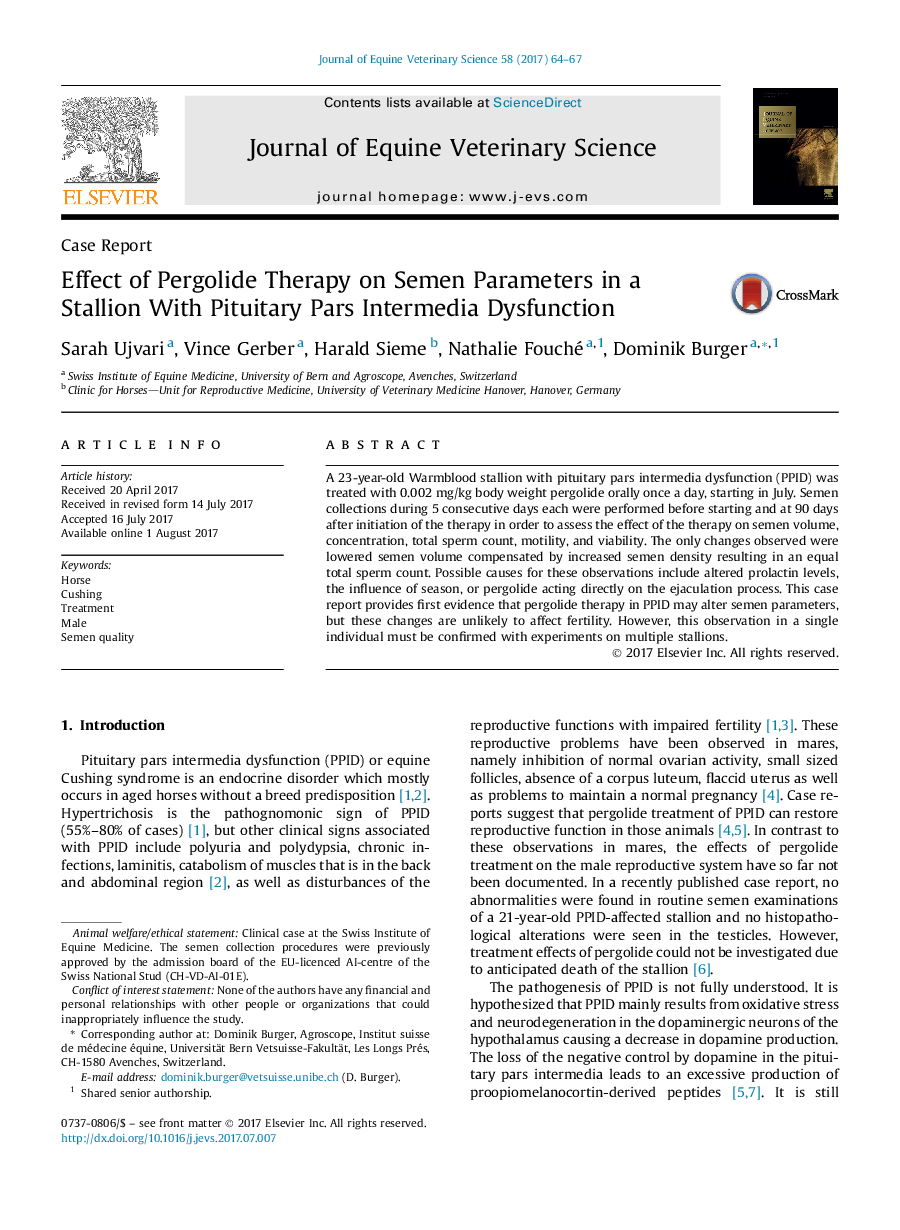| Article ID | Journal | Published Year | Pages | File Type |
|---|---|---|---|---|
| 5535393 | Journal of Equine Veterinary Science | 2017 | 4 Pages |
â¢Case report.â¢Stallion with pituitary pars intermedia dysfunction (PPID) was treated with pergolide.â¢Semen evaluations were performed before and at 90 days after start of therapy.â¢Only changes observed were lowered volumes of ejaculates.â¢Pergolide therapy in PPID is unlikely to affect fertility of stallions.
A 23-year-old Warmblood stallion with pituitary pars intermedia dysfunction (PPID) was treated with 0.002Â mg/kg body weight pergolide orally once a day, starting in July. Semen collections during 5 consecutive days each were performed before starting and at 90Â days after initiation of the therapy in order to assess the effect of the therapy on semen volume, concentration, total sperm count, motility, and viability. The only changes observed were lowered semen volume compensated by increased semen density resulting in an equal total sperm count. Possible causes for these observations include altered prolactin levels, the influence of season, or pergolide acting directly on the ejaculation process. This case report provides first evidence that pergolide therapy in PPID may alter semen parameters, but these changes are unlikely to affect fertility. However, this observation in a single individual must be confirmed with experiments on multiple stallions.
